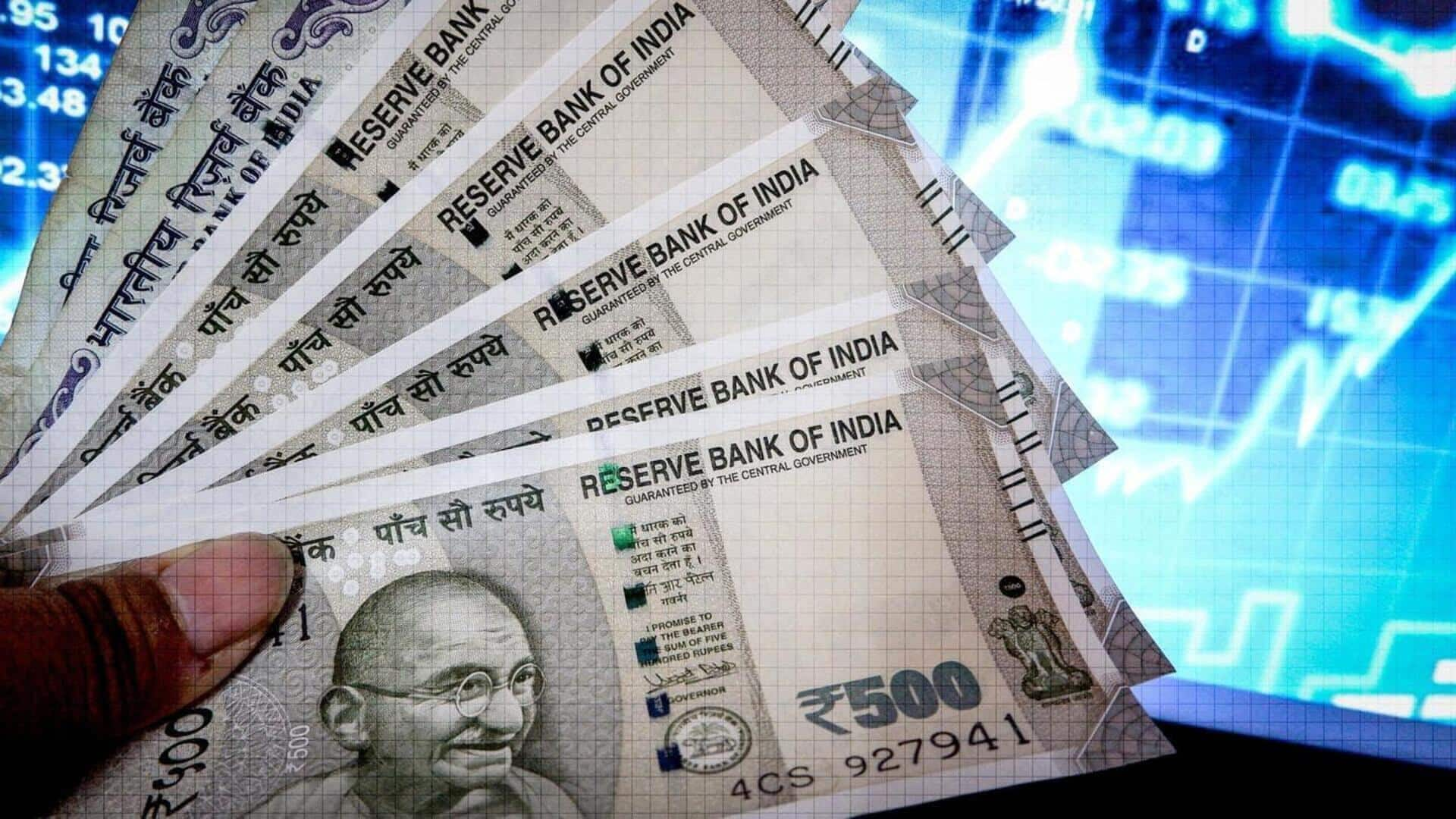
Indian rupee hits historic low, nears 88-per-dollar amid tariff concerns
What's the story
The Indian rupee hit a historic low against the US dollar, opening at 87.92 today.
This major depreciation of 49 paise from Friday's close of 87.43 per USD, comes after US President Donald Trump announced plans for additional tariffs.
The dollar index, a measure of the US currency against six other currencies, also rose to 108.336 in early trade from 108.040 at the previous trading session end.
Regional impact
Asian currencies falter following Trump's tariff announcement
President Trump's decision to impose new 25% tariffs on all steel and aluminum imports and reciprocal tariffs on all countries this week has sent a ripple effect across Asian currencies.
The offshore Chinese yuan fell beyond 7.31 to the US dollar, while other regional currencies like Korean won, Indonesian rupiah, and Malaysian ringgit also fell between 0.4% and 0.7%.
Market forecast
Expert predicts elevated trading levels for rupee
Amit Pabari, MD at CR Forex Advisors, has projected that the rupee is likely to trade at elevated levels between 87.50-88.20 in the near term.
He identified 87.50 as a key support level, suggesting a balance between global uncertainties and domestic policy changes.
This prediction comes after a slight recovery for the rupee on Friday after the Reserve Bank of India's (RBI) monetary policy decision wasn't more dovish than expected.
Market performance
Indian stock market indices falter amid global tensions
Indian stock market indices also took a hit today.
At the time of writing, the Sensex was down by over 450 points to 77,408, while the Nifty 50 traded lower by 142 points or 0.6% at 23,417.
This downturn is attributed to weak global cues following President Trump's tariff announcement and its impact on Asian currencies including the rupee.
Tariff implications
Trump's tariff plan raises trade war risks
President Trump's new tariff plan has sparked fears of trade wars. Analysts think reciprocal tariffs will garner a lot of attention.
Chris Weston, head research at Melbourne-based broker Pepperstone, said countries like Japan, India, Brazil, Vietnam, China and the EU nations are now firmly in the firing line.